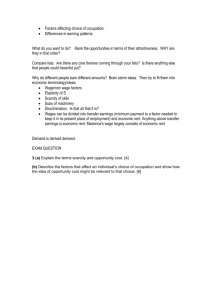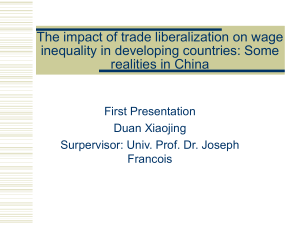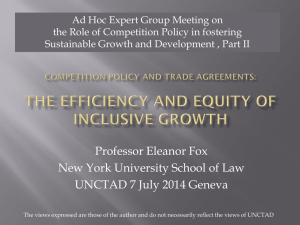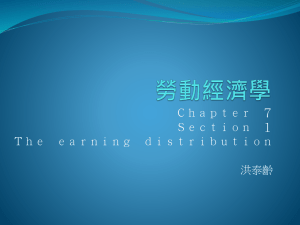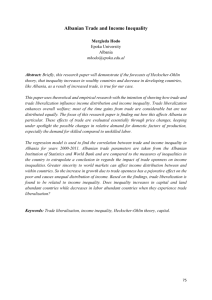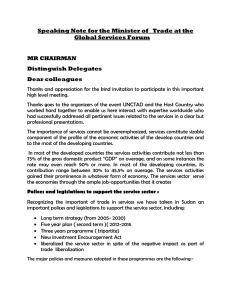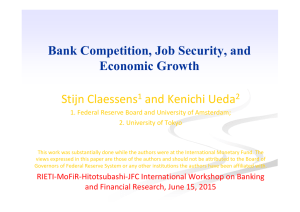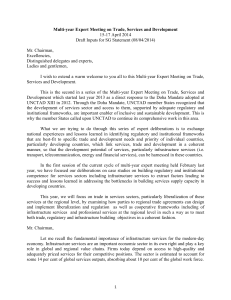Davaa_ABSTRACT Final
advertisement
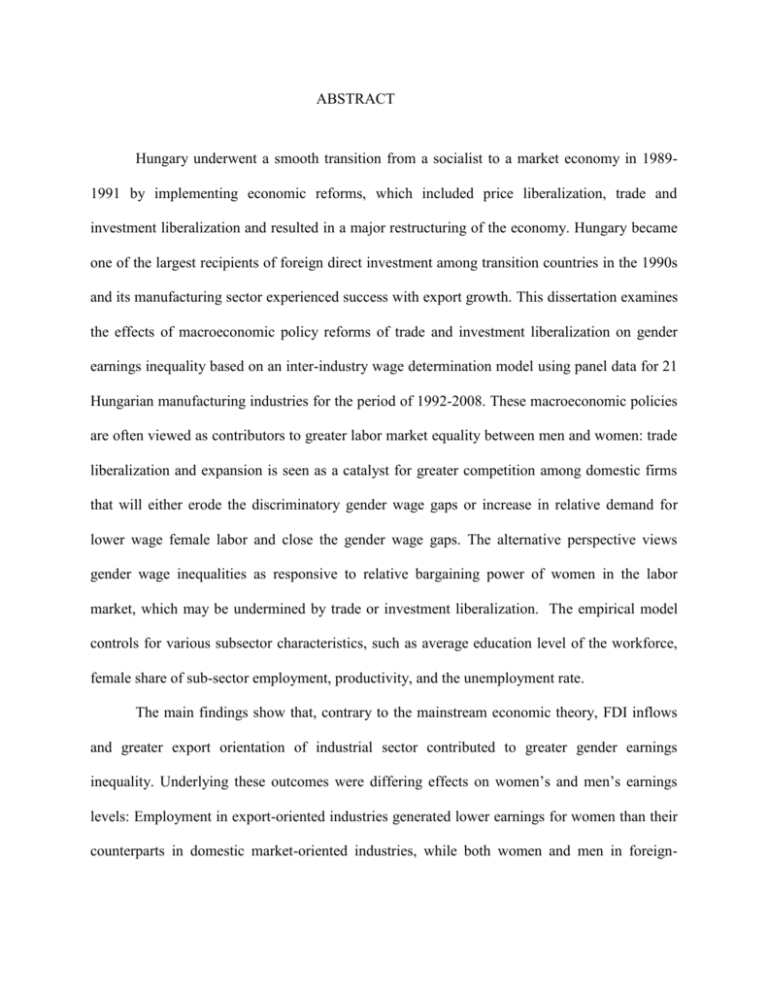
ABSTRACT Hungary underwent a smooth transition from a socialist to a market economy in 19891991 by implementing economic reforms, which included price liberalization, trade and investment liberalization and resulted in a major restructuring of the economy. Hungary became one of the largest recipients of foreign direct investment among transition countries in the 1990s and its manufacturing sector experienced success with export growth. This dissertation examines the effects of macroeconomic policy reforms of trade and investment liberalization on gender earnings inequality based on an inter-industry wage determination model using panel data for 21 Hungarian manufacturing industries for the period of 1992-2008. These macroeconomic policies are often viewed as contributors to greater labor market equality between men and women: trade liberalization and expansion is seen as a catalyst for greater competition among domestic firms that will either erode the discriminatory gender wage gaps or increase in relative demand for lower wage female labor and close the gender wage gaps. The alternative perspective views gender wage inequalities as responsive to relative bargaining power of women in the labor market, which may be undermined by trade or investment liberalization. The empirical model controls for various subsector characteristics, such as average education level of the workforce, female share of sub-sector employment, productivity, and the unemployment rate. The main findings show that, contrary to the mainstream economic theory, FDI inflows and greater export orientation of industrial sector contributed to greater gender earnings inequality. Underlying these outcomes were differing effects on women’s and men’s earnings levels: Employment in export-oriented industries generated lower earnings for women than their counterparts in domestic market-oriented industries, while both women and men in foreign- invested enterprises earned more than their counterparts employed in domestically-owned enterprises. This study, a first for Hungary in incorporating the effects of macro level changes in the analysis of gender earnings inequality, adds to the evidence on adverse effects of the transition on women’s wellbeing and economic opportunities relative to men. The adverse effects of investment and trade liberalization on gender wage inequalities compound the disadvantages experienced by women. A gender-aware background review of the Hungary’s transition in this dissertation shows that in the post-transition period the absolute poverty, economic insecurity and uncertainty of vulnerable groups of society increased, especially among women, big families and Roma population. Although women’s educational attainment improved, their achievement in the labor market and political representation worsened and violence against women and girls increased after the transition.
